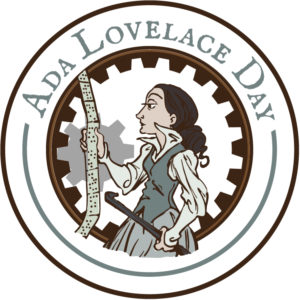 This year, we will be celebrating the 14th Ada Lovelace Day on 11 October. When I founded ALD in 2009, I had no plans for 2010, let alone 2022. But although Ada Lovelace Day itself has been more successful than I could ever have imagined, inspiring girls and women around the world, a lot has changed since it was launched.
This year, we will be celebrating the 14th Ada Lovelace Day on 11 October. When I founded ALD in 2009, I had no plans for 2010, let alone 2022. But although Ada Lovelace Day itself has been more successful than I could ever have imagined, inspiring girls and women around the world, a lot has changed since it was launched.
The good news is that there are now dozens of organisations in the UK that focus on supporting women and girls in STEM, with hundreds around the world. The bad news is that Brexit, the Covid-19 pandemic and the cost of energy crisis have slashed the budget companies have for sponsoring organisations like ours.
People who see the impact of our work may not realise that we are a tiny organisation and that everything we do has been done on a shoestring. We’ve had generous and committed sponsors, but the funding landscape has changed, and it’s now impossible to continue as we are.
Out of the last three years I’ve hit my sponsorship target once and this year I’ve raised less than half the money I need to continue. In addition, the Finding Ada Network mentoring program, which I had hoped would plug the gap, has not proven popular with businesses even though our mentors and mentees have found the program invaluable.
This means that Ada Lovelace Day as we currently know it must change. Once this year’s celebrations are complete, I will no longer organise official online or in-person events for Ada Lovelace Day, nor will I be able to continue running the Finding Ada Network. I will, however, continue to run the Worldwide Events map so that there’s a central repository for all the independent events that I have no doubt will continue.
Instead, I will be focusing my energies on my consulting service – helping businesses tackle the structural and systemic barriers that prevent women from flourishing and advancing into leadership roles – under the Finding Ada brand. And I’m offering a free 45 minute, no-obligation call to anyone who’d like to discuss their needs and their best next steps, so if you would like to talk about how I can help your business, please email me.
And of course, if you would like to sponsor Ada Lovelace Day, do drop me an email.
Finally, I would like to thank you all for your support over the years. It has been amazing to have been able to see so many people celebrating Ada Lovelace Day in so many places around the world!
I am also incredibly grateful to everyone who has helped me over the years – all our speakers, contributors, sponsors, Patreon supporters, crowdfunder contributors, book chapter writers, volunteers, freelances and our Advisory Council. You’ve done a grand job inspiring girls and women around the world! Thank you!
